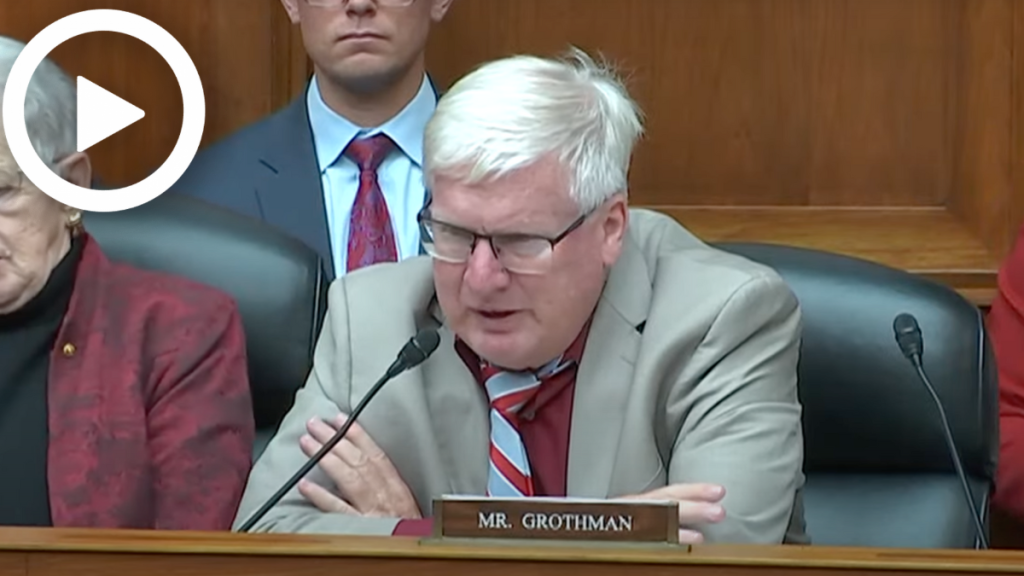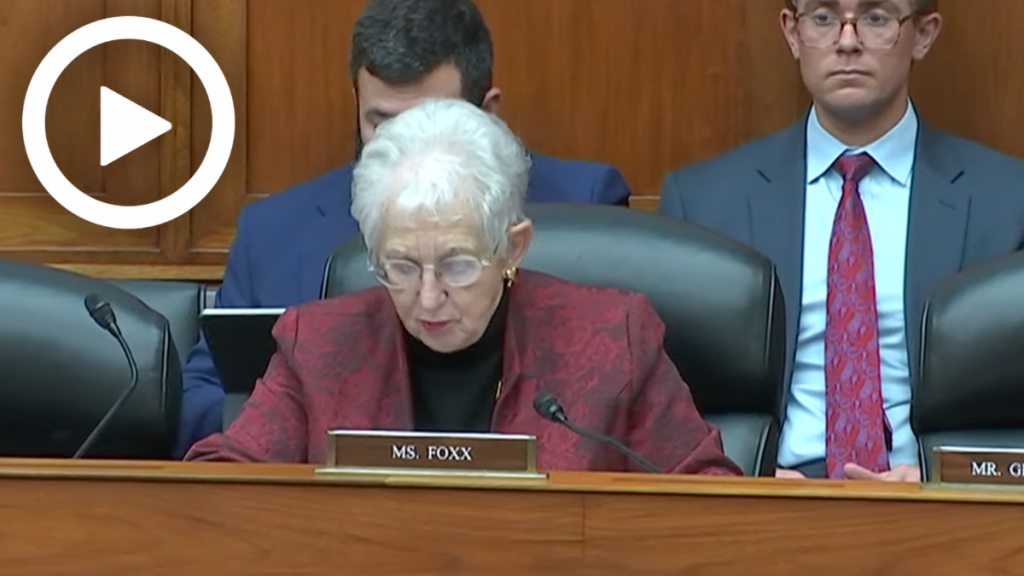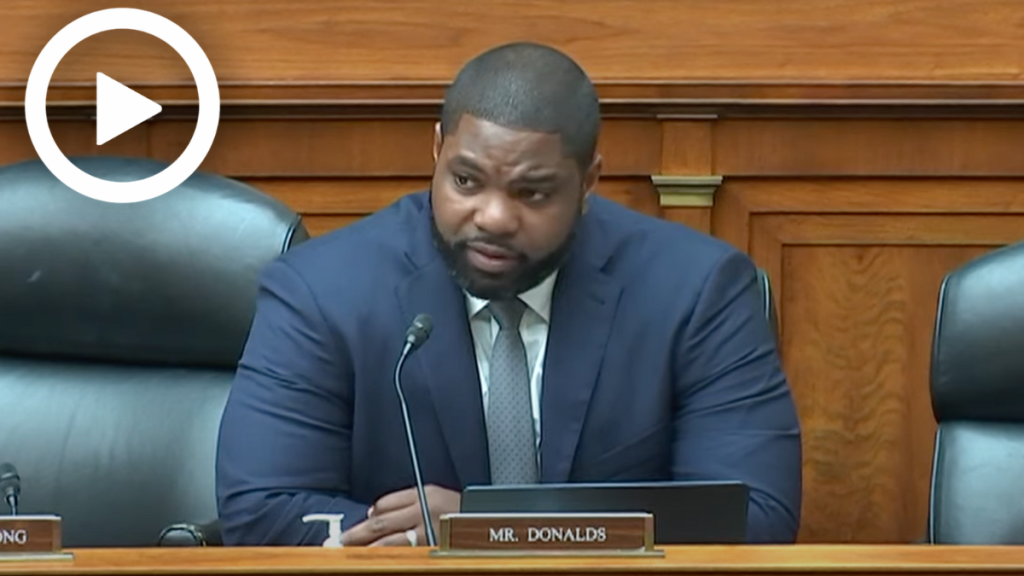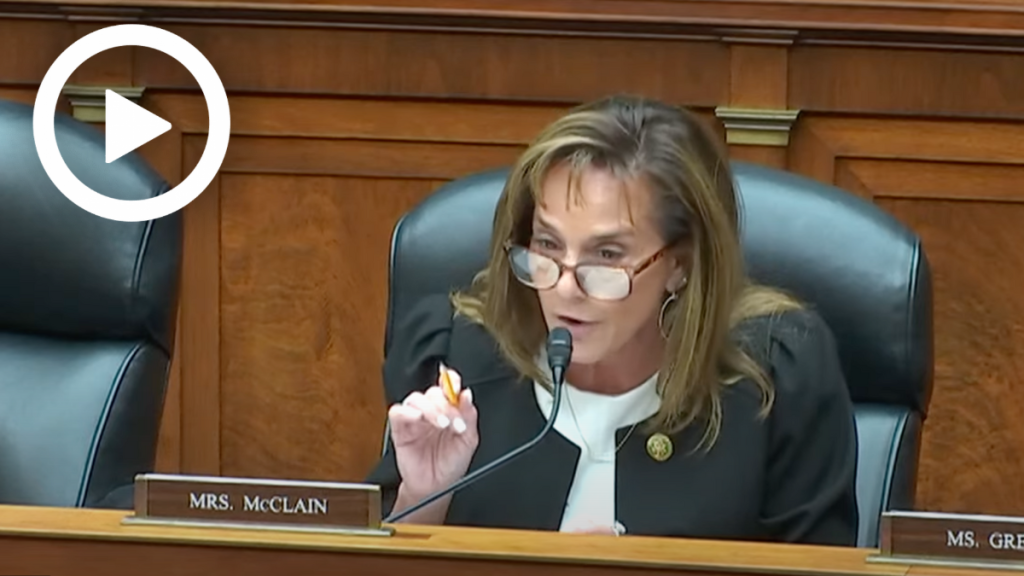Hearing Wrap Up: Liberal Activists are Hijacking America’s Legal System to Push Radical Agenda
WASHINGTON – Today, the House Committee on Oversight and Accountability held a hearing titled “Unsuitable Litigation: Oversight of Third-Party Litigation Funding.” At the hearing, members and witnesses highlighted how left-wing activists are funding litigation in an effort to hijack America’s legal system to influence policy decisions, determine outcomes, and cement a progressive agenda. Witnesses noted that these liberal funded lawsuits are currently impacting the mining of critical minerals, development of new medications, energy production, and other key American industries. Too often these lawsuits delay critical projects and fail to prioritize Americans’ interests and members stressed that Congress must work to identify ways to improve transparency in litigation funding and ensure fairness in the legal system.
Key Takeaways:
Left-wing activists are funding lawsuits seeking to infiltrate America’s legal system, influence policy decisions, and cement a progressive agenda.
- Chairman James Comer (R-Ky.): “These activist groups will find plaintiffs and pour millions into claims against energy, mining, and manufacturing companies to the detriment of consumers, innovation, national security, the workforce, and even to plaintiffs themselves. All in the name of political activism.”
Third-party litigation tactics are negatively impacting the mining of critical minerals, development of new medications, energy production, U.S. national security, and other key American industries.
- Mr. Erik Milito, President, National Ocean Industries Association (NOIA): “Litigation can serve as an important tool to hold federal agencies accountable to their statutory obligations, but the continued abuse of litigation to disrupt federal energy leasing ultimately penalizes the American consumer more than anyone. Efforts to restrict U.S. energy development could eventually lead to Americans of every walk of life having to contend with the issues Europe has been experiencing as a result of disrupted supply from Russia, including potential industrial curtailment and families having to make difficult choices between heat and food.”
- Ms. Julie Lucas, Executive Director, MiningMinnesota: “The litigation process that was developed to protect communities like ours is being abused today. Too often it is solely used to delay projects and drain the funding of companies with the hope investors will give up and leave… These actions are not designed to make a project stronger. They are actions by groups who will never support or accept that not only do we need Minnesota’s minerals, but that there are proven and effective ways to realize the potential of this resource.”
- Ms. Aviva Wein, Assistant General Counsel, Johnson & Johnson: “This corruption of the civil justice system is one of the most significant challenges facing U.S. manufacturers of widely used products—from lifesaving and life-enhancing medicines and medical devices, to other consumer goods.”
Activist groups shouldn’t be legislating via litigation and the Oversight Committee will work to identify ways Congress can address third-party litigation funding to ensure fairness in our legal system, increase transparency, and protect key American industries.
- Chairman James Comer (R-Ky.): “Let me be clear, agencies should not be conducting rulemaking via litigation. And activist groups certainly shouldn’t be legislating via litigation. Today is a first step to identifying how pervasive third-party litigation funding is and how deep the abuses go.”
Member Highlights:
Committee Chairman James Comer (R-Ky.) opened the hearing by stating that many lawsuits are being funded by activists aiming to influence policy decisions and cement a progressive agenda. Chairman Comer pointed out that activist groups shouldn’t be legislating via litigation and will work to identify ways Congress can address third-party litigation tactics to protect American consumers.
Chairman Comer: “The spread of untraceable and undisclosed funding of lawsuits across the country is raising significant ethical and legal questions. For example, many lawsuits are funded by progressive activists or private equity seeking to hijack America’s legal system to implement their policy desires or make a quick buck. Lawsuits that impact the mining of critical minerals, development of new medications, energy production, and our national security… These groups know that their tactics and goals are too extreme for the American people to support. So rather than use the electoral process, they are implementing their agenda through litigation against both the public and private sectors.”
Chairman Comer also emphasized that Americans deserve to know the truth about these third-party litigation tactics and noted that left-wing lawsuits are directly costing and harming American consumers.
Chairman Comer: “I think it is important to briefly summarize how third-party litigation funding works because I don’t think everyone understands it.”
Ms. Wein: “Based on my experience, what is happening is law firms will contract with third-party litigation funders, access a significant amount of cash from them, use that money to generate huge media ad campaigns and then collect and funnel court cases into litigation and then settlements. What is interesting is there is no transparency, no disclosures, and no ethic obligations with the funder. This is what is so concerning.”
Rep. Andy Biggs (R-Ariz.) stressed that excessive litigation funding tactics are impacting the development of critical U.S. natural gas and renewable energy projects both onshore and offshore.
Rep. Biggs: “The problem is real. Let’s talk about the litigation. What does litigation costs do to the timeline of energy development projects?
Mr. Milito: “It extends it dramatically… sometimes makes it impossible to move forward with the projects. Activist groups file lawsuits under normally NEPA or Endangered Species Act and after the case is filed, negotiations begin. Government though DOJ usually settles the case with new requirements or restrictions.”
Rep. Biggs: “So when we read that in one year the Sierra Club proudly proclaims that it brought 200 lawsuits to stop even renewable fuel projects what does that really mean for folks trying to get into renewables?”
Mr. Milito: “These are job destroying actions. We support more than 350,000 jobs across the country… these are high paying jobs. When you are taking these regressive actions, it hurts all American consumers.”
Rep. Glenn Grothman (R-Wis.) pointed out that left-wing litigation tactics are hurting key American industries, such as mining efforts, and putting us at a disadvantage economically on a global scale.
Rep. Grothman: “We all know we would be better off if we produced goods in America. Is there any country around the world that has anything like this as far as the ability to file lawsuits and have the government in cahoots with the plaintiffs? Potentially putting us at a disadvantage with other countries or is it having us rely on countries with a lot lower standards than ours?”
Ms. Lucas: “I think this is why we see the U.S. go overseas. I am here today to let folks know we don’t have to go overseas and make deals. In Minnesota, we can acquire critical minerals here at home.”
Rep. Virgnia Foxx (R-N.C.) also highlighted that excessive litigation efforts, such as sue-and-settle tactics, are driving America’s energy industry to rely on foreign sources.
Rep. Foxx: “One popular approach for third-party groups to achieve goals they cannot otherwise enact democratically through the legislative process is to use sue-and-settle tactics. The Trump Administration sought to end these practices, but the Biden Administration permitted its use once more. Can you describe these effects of sue-and-settle tactics?”
Mr. Milito: “The end result is an inability to move forward with investments in U.S. energy projects. The outcome of that is a shift in investment and production to other parts of the world.”
Rep. Byron Donalds (R-Fla.) noted that Democrats are excessively utilizing dark money groups to implement a radical agenda and that there is a need for greater transparency around third party litigation efforts.
Rep. Donalds: “We need to note this for the record. The use of dark money, especially since 2020, has been dominated by my colleagues on the other side of the aisle. The New York Times and the Hill have even reported on this. Most dark money comes from the political left… We should be concerned about one of the issues we are clearly seeing with third party litigation is that there are dark pools funding lawsuits and I do think there are some levels of transparency we need to find around this issue.”
Rep. Lisa McClain (R-Mich.) also stressed that a lack of transparency around third party litigation funding is concerning, and a lack of monetary reporting requirements enables foreign entities to advance their own political and monetary gain.
Rep. McClain: “I think we can all agree that a lack of transparency around third party litigation funding and a lack of monetary reporting requirements is concerning. Dark money on either side is never a positive… This can open the door for foreign entities to influence U.S. court proceedings for their own political and monetary gain. Foreign adversaries could access I believe privileged information, including sensitive government information, via the litigation process because of a lack of transparency. Are their loopholes in the legal system that could allow say China to gain access through the discovery process?”
Ms. Steinitz: “That is a possibility.”
Rep. McClain: “Do you believe that updating reporting requirements and disclosing lawsuit funding sources could be a potential remedy for this situation?”
Ms. Steinitz: “Yes.”
CLICK HERE to watch the hearing.






